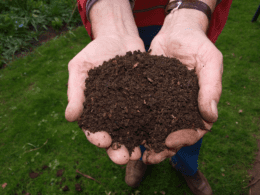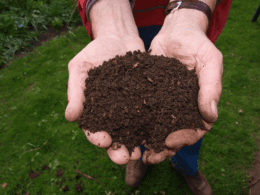Quick Takeaways
- Composting hair provides benefits to gardens and the environment, including releasing beneficial nutrients for plants and reducing waste.
- Hair is a high nitrogen ingredient that helps aerate compost piles, but should be balanced with brown carbon-based ingredients and cut into smaller pieces for faster processing.
- Tips for composting hair include avoiding chemical treatments, incorporating with other kitchen scraps, and recycling hair regularly for faster processing.
- Composting hair is important for creating healthier gardens and environments, keeping hair out of landfills, and using chemical-free options for hair care products to prevent harmful substances from entering the compost.
Can I Use Compost Tumblers to Compost Hair?
Mastering compost tumblers in 6 steps can help you create nutrient-rich compost effortlessly. However, when it comes to composting hair, caution is necessary. While hair is biodegradable, it decomposes slowly. To expedite the process, it is advisable to cut hair into smaller pieces or mix it with other organic materials. Compost tumblers can still be used, but additional steps might be required to break down the hair effectively.
Benefits of Composting Hair
You can give your garden a nutrient-rich boost by composting your hair. Hair has a high nitrogen content, which makes it a great green ingredient for your compost pile. As it breaks down, it releases beneficial nutrients that your plants will love. Plus, hair helps to aerate the compost pile, which is important for healthy decomposition. Not only is composting your hair good for your garden, it’s also good for the environment. By recycling your hair through home composting, you’re keeping it out of the landfill and reducing waste. Plus, you’re creating a natural fertilizer that doesn’t rely on harmful chemicals. So, if you’re looking for a simple way to give your garden a green boost, start composting your hair today!How to Compost Hair
Breaking up clumps of hair before adding them to the compost pile is an important step in composting hair. This technique helps balance the nutrient content and promotes faster processing. Here are some cutting techniques to help you break up hair into smaller pieces for composting:- Use scissors or shears to cut the hair into small pieces, no longer than 2-3 inches.
- If you have a lot of hair to compost, consider using a lawn mower or weed whacker to chop it up into smaller pieces.
Tips for Successful Hair Composting
To successfully compost hair, remember to balance it with brown carbon-based ingredients and turn the pile regularly to promote oxygen flow and faster processing. Cutting hair into smaller pieces will also help it break down faster. Keep in mind that chemical treatments in hair should be avoided to prevent harmful substances from entering the compost. Instead, opt for organic and chemical-free hair care options. To help you get started, refer to this table for cutting techniques and chemical-free options:| Cutting Techniques | Chemical-Free Options |
|---|---|
| Use scissors or clippers to cut hair into small pieces | Choose organic and chemical-free hair care products |
| Avoid adding large clumps of hair to the pile | Use hair from haircuts, not hair that has fallen off naturally |
| Incorporate hair with other kitchen scraps | Avoid adding hair with chemicals or medications |
| Wait to add hair until the pile is balanced | Recycle hair regularly for faster processing |









